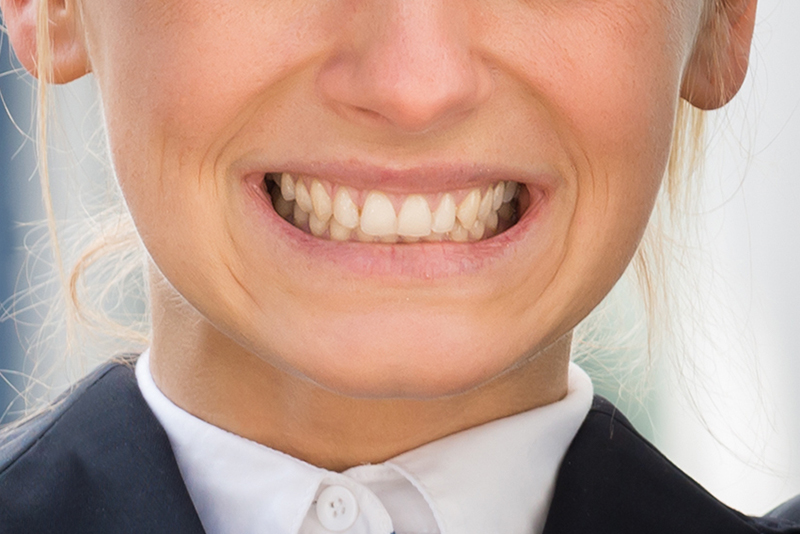
Teeth grinding is when you clench your jaw closed & grind your teeth together, whether consciously or unconsciously. Teeth grinding is called bruxism by dentists, & it can cause damage, discomfort & pain.
While some people subconsciously grind their teeth while they’re awake, most people who suffer from teeth grinding do so at night. Teeth grinding is much more common in children than adults, so it is often considered something that children will grow out of. However, many people go through periods of bruxism & do not necessarily grind their teeth continually throughout their lives.
Teeth grinding can be diagnosed by your dentist. If you have a history of jaw pain or fatigue when you wake up in the morning, the dentist may wish to examine you for other signs of teeth grinding. These can include excessive tooth wear & enlarged jaw muscles. Waking up with a headache or tooth sensitivity that cannot otherwise be explained can also be signs of tooth grinding. In some people teeth grinding can even be detected from an audible grinding noise, often noticed by a sleep partner or parent.
It is extremely important that you get treatment for teeth grinding because while it may seem harmless, over time it can do a lot of damage to your mouth. Teeth can become cracked, loose, or get ground down so much that the hard protective outer layer of your teeth (called enamel) disappears, exposing the softer materials below that are much more vulnerable to tooth decay.
In addition to damage to your teeth, grinding can cause dull headaches, face pain, ear pain, & jaw problems such as pain, stiffness, clicking or locking.
The causes of bruxism are not positively known, but it has been linked to stress, sleep apnea, loud snoring, & certain anti-depressant medications.
No matter the cause, your dentist can offer treatments to prevent bruxism from continuing to damage your teeth & prevent tooth decay. The most common treatment is a custom made bite splint or bite guard that is worn over the upper teeth at night. This bite guard is custom made by your dentist so it fits your teeth exactly, which helps keep it in place & make sure it’s comfortable to wear. Your dentist will take a mold of your teeth then create the bite guard out of plastic or rubber.
If your dentist suspects that your bruxism is linked to a sleep disorder such as sleep apnea, you may be referred to a dentist or physician who specialized in sleep disorders.
If you suspect you or your child may suffer from teeth grinding, please contact us as soon as possible to prevent potential problems such as TMJ, cracked teeth, or tooth decay. We can take a look at your mouth & ask your questions to determine if you have a problem that needs treating.
